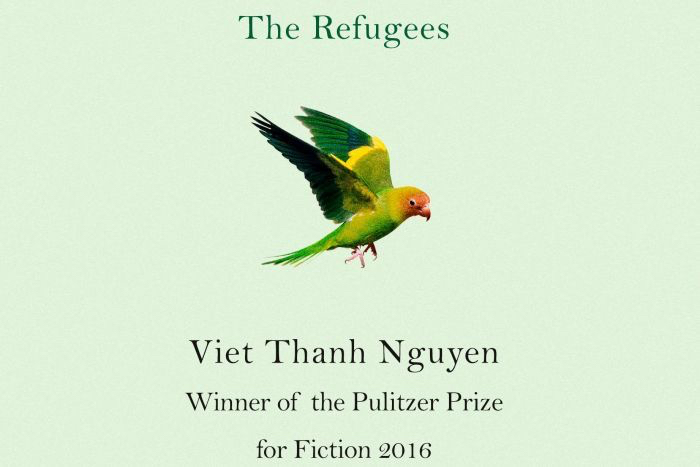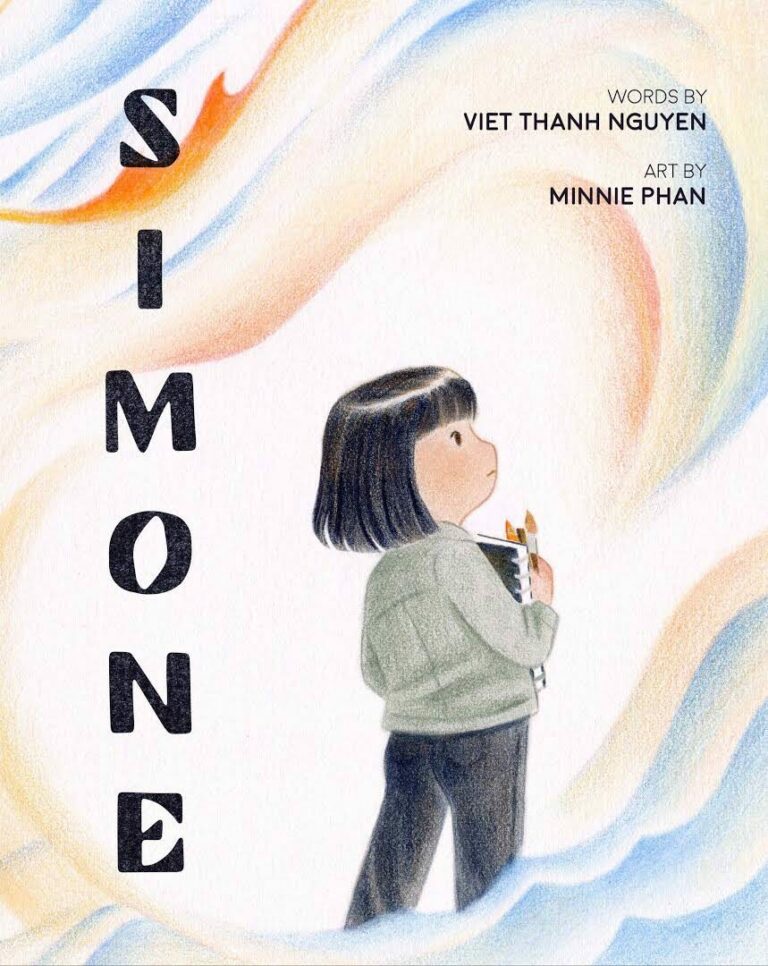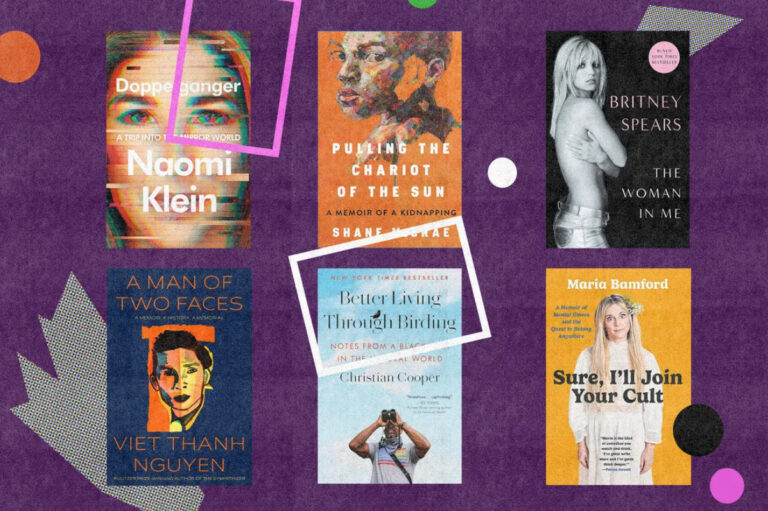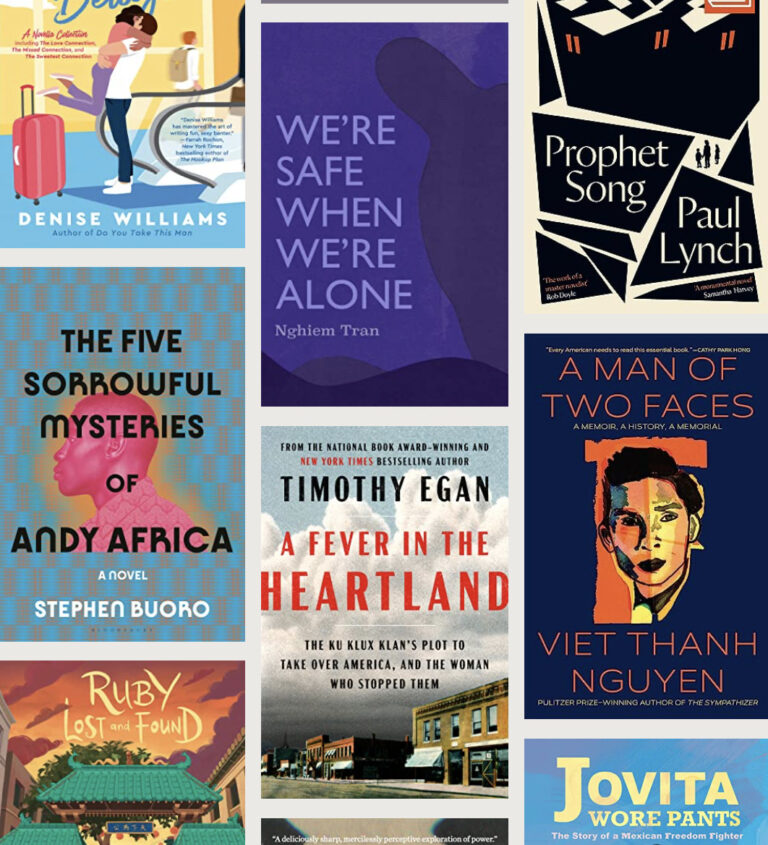Dr Trudi Tate of Refugee History writes a review of Viet Thanh Nguyen’s The Refugees, his award-winning collection of short stories.

The war in Viet Nam lasted from 1955 to 1975. The US was covertly involved from the 1950s, and overtly at war in Viet Nam 1963-73. American intervention helped to create a huge number of refugees, even as it eventually gave many of them refuge.
Viet Nguyen was born in Viet Nam in 1971 and left as a refugee with his family at the age of 4, soon after the war ended. He defines himself even now as a refugee, not an immigrant. He argues that American culture recognises immigrants as an important part of the national history, even if it is periodically hostile towards them, but it is much more uncomfortable with refugees.
Refugees […] are threatening, not just to Americans, but also in many countries the world over. And it’s partially because, unlike immigrants, refugees do not choose where they’re going to go or why they’re fleeing […]. They bring with them the stigma of disaster. That scares people who are not refugees […] We’re all just one catastrophe away from ending up as a refugee, and we don’t want to be reminded of that.
Nguyen is a well-respected academic and writer and a great champion of Vietnamese diaspora culture. His novel The Sympathizer won the Pulitzer Prize in 2016. His essay collection Nothing Ever Dies: Vietnam and the Memory of War brilliantly shows how the memory of the war cuts deep into cultural history.
The Refugees is a powerful collection of 8 short stories, written between 1997 and 2014.
The compelling first story ‘Black-Eyed Women’, bears witness to the long work of refugee memory. Nguyen spent many years revising this story, rewriting it some 50 times. It is a story that haunts and keeps returning, and keeps us returning, like the melancholy ghosts it describes.
The narrator is a ghostwriter, living quietly with her mother. The father has recently died. Gradually we learn that the narrator had a brother who died 25 years ago, trying to protect her from pirates on their refugee boat. Her parents grieve for the lost son, but cannot bring themselves to face the grief of the daughter, who is alive, yet also lost. In the story, the ghost of the brother returns.
Her mother, like many Vietnamese people of her generation, believes in the redemptive power of ghosts. When the brother returns, the narrator finds that she believes in ghosts, too. His presence helps her to face some of the traumatic past, and to begin to grieve. The story explores the ways in which trauma shapes a family’s dynamic as well as individual lives. Who can speak about these events, and who is listened to?
’War Years’ is set in San Jose in the early 1980s, and is based on Nguyen’s memories of his parents’ grocery store. A woman tries to blackmail the parents into giving money to an anti-communist cause. Does the cause really exist, or is she a fraudster? Gradually we learn that people closest to her are still missing in action years after the actual war ended. She is a refugee, still living in a long-lost war. Keeping that war going keeps her loved ones alive, at least in fantasy.
‘I’d Love You to Want Me’ tells of an elderly refugee couple in southern California. Professor Khanh is in the early stages of dementia. He starts to call his wife by the wrong name, Yen. He brings her a rose, which he has never done before. Mrs Khanh resents this misplaced romance. Was Yen an early lover, another wife? The whole history of the marriage is thrown into question. Mrs Khanh becomes a full-time carer to a man who thinks she is someone else and, she fears, loved Yen rather more than he loved her.
In ‘The Transplant’, an American man’s life is saved when he receives a liver transplant. He tries to trace the family of the donor, a Vietnamese refugee. He finds someone called Louis claiming to be the donor’s son, and they become friends. Louis trades in counterfeit designer goods, ‘better than genuine’ (88). But like the goods, Louis is a fraud. The story explores questions of loyalty and deception; of losing life and gaining it. What debts of gratitude do we owe; what do they mean?
‘The Americans’ is less obviously a refugee story. James is an American war veteran. He was never actually on the ground in Viet Nam, but flew B52 bombers. He has no interest in going to Viet Nam in peacetime, but his daughter Claire moves there to teach English to poor children, and persuades him to visit. James is African-American and his wife is Japanese. Claire grows up feeling that she does not belong anywhere. But as a teacher in Viet Nam, she feels she finally has a place. ‘I have a Vietnamese soul’, she tells her father, to his intense irritation. James finds this unbearable. The story shows us how things look from his perspective; he is from a poor background and found a good education and career in the air force. He cannot bear to look too closely at the war. His relationship with his daughter is tense and difficult. She faces some realities of the effect of the war on the Vietnamese people. The story ends with a scene of great gentleness when James gets very ill and Claire helps to care for him in the Vietnamese hospital.
The stories in this collection show how refugee history cuts across generations, but they are also punctuated with profound moments of tenderness and reconciliation. These moments offer hope, while insisting that the reader remembers the context: the Vietnamese displaced and impoverished by the war; thousands of land mines still killing people in Cambodia and Viet Nam, the continuing legacy of Agent Orange, and a war, whose refugees keep having to live again in memory.


